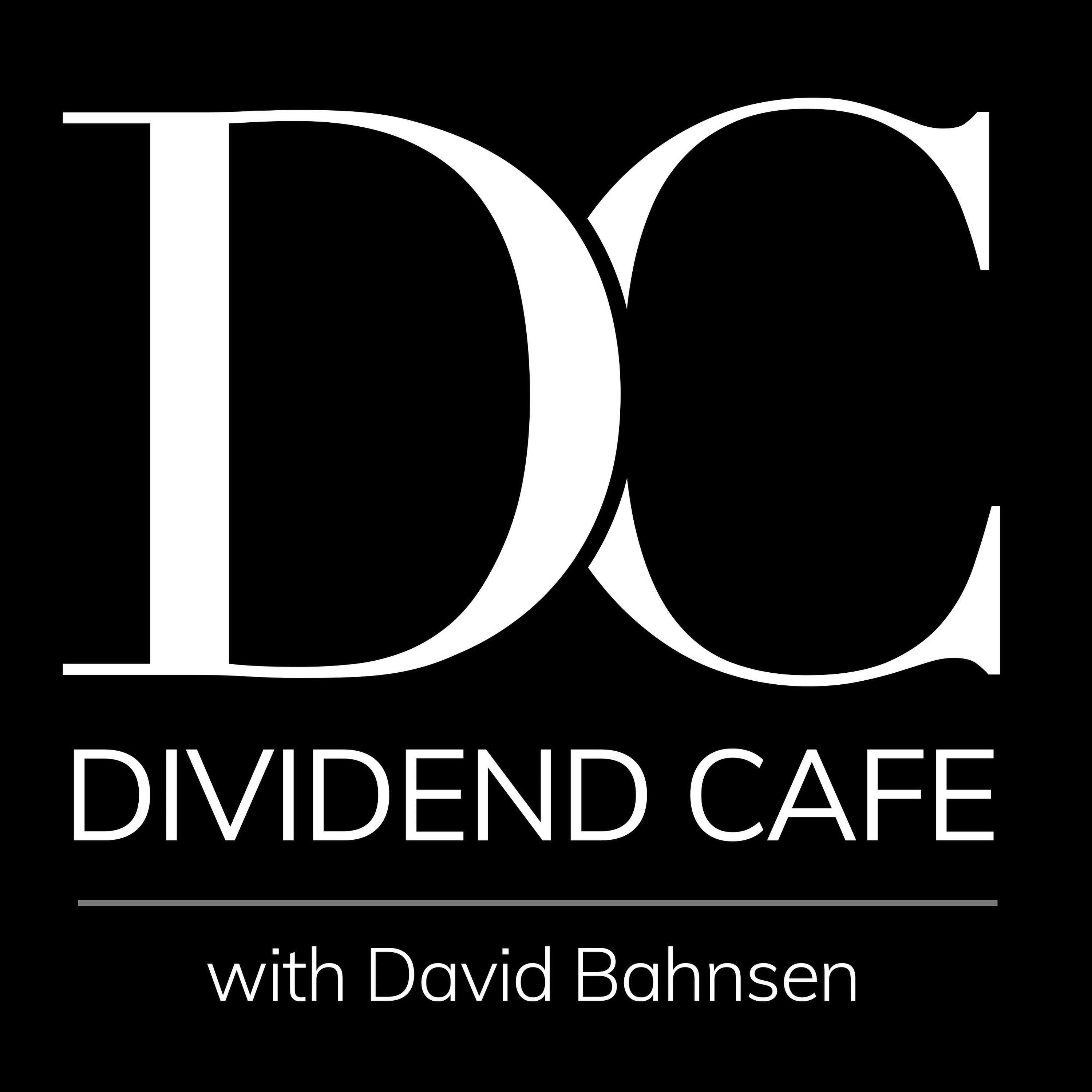Dear Valued Clients and Friends,
We all know that the Russian invasion of Ukraine has been the biggest story of 2022 thus far, not just for markets but for the entire news cycle. Ten minutes do not go by on the news without hearing the word “Russia” or “Ukraine” – for good reason (there is a war going on, you know).
And there are other countries that do not exactly hide in the background, either. China is never far from our dialogue, both because of its role in the COVID pandemic that swept the globe in 2020 and because of its sheer size as an economic powerhouse. In fact, U.S.-China relations may be the most talked-about geopolitical story of the last ten years (also for good reason).
But there is another country that is rarely discussed these days, and perhaps offers as many economic implications as Russia, Ukraine, and China. And when I say economic implications, I mean the full portfolio of categories – geopolitical, financial markets, and macroeconomic.
And that country is the subject of this week’s Dividend Cafe.
|
Subscribe on |
Saudi and Us
Reports of two things came out in the last couple weeks that have created a fair amount of consideration and discussion:
(1) Word that Saudi Arabia has invited China’s President, Xi Jinping, to visit Riyadh soon
(2) Word that Saudi Arabia may denominate oil sales to China in Chinese Yuan (versus U.S. dollars)
A fair amount of the concern or discussion has not been rooted in any particular issue – just the general wondering as to whether or not this was something bad that should concern us. Fair enough.
My prima facie response was that the latter was no surprise whatsoever – and that Chinese yearning for respect for its currency is, in fact, its largest strategic initiative on the planet right now. The fundamental truth about China’s global economic position is that (a) A lot of things get bought from China, and (b) Current account deficits being settled in U.S. dollars give a huge advantage to the United States. If China can keep A but alter the reality of B (even just slightly) it fundamentally alters its ability to compete in the global economy. China has never been close to offering other countries a viable currency alternative to the dollar. They have worked for 15+ years to change that, often to their short-term detriment.
So China’s objectives are clear here – they want more global use of their currency, which improves their standing as a global exporter of goods. Oil as the #1 dollar-denominated commodity on the planet being purchased in Yuan provides huge standing to the Yuan and serves up an at least symbolic statement of dollar status diminishment.
But what about Saudi Arabia? What are they up to here? Do they really care to improve China’s standing in the global economy? If so, why?
Color me skeptical.
Much like a jilted girlfriend using another guy to make her former boyfriend jealous, Saudi’s recent posture with China has everything to do with her frustrations with the United States.
A History Lesson
Formal relations between the United States and Saudi Arabia began in the middle of the 20th century as World War 2 was ending. It is not hard to understand what drove the U.S. relationship with Saudi – oil. The U.S. had provided diplomatic recognition of Saudi well before the war but it was the war’s revelation of how vital oil was to U.S. military and economic interests that caused FDR to raise the stakes in the U.S. relationship with the Saudi Kingdom.
A lot unfolded in the couple decades after the war, but they more or less always came down to this very simple quid pro quo: The U.S. provided basic protection for the Saudis, and Saudi provided stable oil markets (and export production) for the world – with the U.S. its largest customer. The mutual benefits were significant.
Over the years things became more complicated. The U.S. was not merely important to Saudi by the 1970s because of our purchase of their oil (and joint ventures for oil production with U.S. companies), but also because the U.S. became a huge supplier of military equipment and supplies (like jets and missile technology) to Saudi that were vital to their own military strength in what was clearly a volatile part of the world. The friendly alliance between the U.S. and Israel was a constant source of friction, just not enough of one to change the basic terms of engagement – you provide oil price stability; we provide money and protection.
The other “term of engagement” here was the advent of “petro-dollars” … Essentially, Saudi would only accept payment for oil in U.S. dollars, and the U.S. would protect Saudi oil fields. Again, this was a strong quid pro quo arrangement of mutual economic and geopolitical benefit.
The Peak Years
Suffice it to say, the U.S. endeavor against Iraq and Saddam Hussein when they invaded Kuwait in 1990 maximized Saudi appreciation for the United States. Fear of Saddam coming into Saudi was petrifying to Saudis, but also petrifying to the United States who knew full well what Middle Eastern instability would mean to global harmony and economic conditions.
I would argue that U.S.-Saudi relations should have frayed post-9/11 (it is frequently discussed that 15 of the 19 hijackers were from Saudi Arabia, and there is significant discussion about how financial support for Al-Qaida was able to take place within the kingdom), but in reality, the U.S. and Saudi maintained a pretty strong public face post-9/11. It was not until the last decade that things began to change.
Fracking along in the Arab Spring
As the U.S. came out of its self-induced financial crisis 12+ years ago, something else was going on that was not only changing the entire face of the U.S. economy but the U.S. relationship with Saudi as well. Fracking. The ability of the U.S. to extract oil from shale rock in its own backyard dramatically changed the landscape of world energy production, and of course geopolitics. The U.S. position as a net importer of oil (much of it being from Saudi Arabia) appeared to be turned on its head, with the U.S. not only becoming less of a customer of Saudi oil but becoming a competitor to Saudi for world oil exports.
The U.S. potential as a competitor to Saudi in oil exports would not develop as it could as domestic U.S. policy discouraged the idea of the U.S. producing more, let alone exporting. The environmental debate around such didn’t curtail much of the domestic opportunity for U.S. oil production but it did keep the U.S. from intensifying its potential position as a Saudi competitor on the world stage. In this sense, the U.S. environmental lobby became a huge ally for the Saudi kingdom in that it staved off what could have become a much more significant rift in Saudi-U.S. relations. Yay???
But while fracking in the U.S. was lowering U.S. reliance on Saudi oil, even though it was not allowing the U.S. to compete with Saudi globally, there were other international developments that were working towards the rapid deterioration of U.S-Saudi relations.
For good or for bad, the U.S. changed its policy on Egypt in the 2011-2013 Arab Spring. The Muslim Brotherhood removed American ally, Hosni Mubarak, from power and Saudi felt abandoned as the (anti-Saudi) Arab spring ran throughout the Middle East. A Civil War in Syria saw Russia defend the anti-Saudi Syrian government of Assad while the U.S. largely stayed on the sidelines. More or less, each development of the last ten years saw some disagreement between Saudi and the United States.
When leverage changes
This is not to say the U.S. was right or wrong in various actions or inactions throughout the last ten years – it is only to say that it has been a decade of deterioration in U.S.-Saudi relations, all prefaced by a collapse of U.S. need for Saudi oil. Indeed, what was 1.5 million barrels per day imported to the U.S. from Saudi Arabia is now a mere 500,000. No one should believe that a 67% reduction over a 20-year period is not crucially central to the current situation.
The final innings of this thaw
Fast forward to the latter portion of the first 20 years of this highly unsettling century. On the other side of 9/11, a financial crisis, the Arab Spring, the Syria mess, and all the aforementioned items, the following events have all transpired:
(1) Saudi lied about the killing of journalist Jamal Khashoggi, an event that led to international profile and outrage. The CIA did not avoid blaming Saudi for the event and U.S. posturing around the global outrage significantly escalated tensions between the two countries.
(2) The U.S. entered into an agreement with Iran near the end of the Obama administration that infuriated the Saudis, allowing Iran to enter the world oil markets and essentially strengthening Iran’s intentions in the Middle East. The Trump administration subsequently nullified that deal, but talks are underway now between Iran and the Biden administration to bring it (or a version of it) back.
(3) A massive drone attack on Saudi oil fields in 2019 took place (an Iranian terrorist group took credit) and the U.S. opted to not respond.
(4) And then in March 2020 as the COVID pandemic was suddenly breaking out worldwide, Saudi opted to flood the world with oil, ramping up supply as part of a price war with Russia, collapsing global energy markets, and bringing the U.S. upstream energy sector to its knees.
What does this all mean to us as investors?
I think the first lesson is this: Always pay attention to the stuff that matters that no one else is paying attention to. Is there an edge right now in investing by reading every word coming out of Ukraine/Russia coverage, or is it safe to say that stuff is pretty well-covered? This is not to say that the Russia/Ukraine story does not matter – it does, and we cover it every day at our own DC Today – but it does mean that some stories of international intrigue are more “priced in” than others.
Likewise, a plethora of aspects of China are very well-covered. I am not sure how well-understood they always are, but covered, yes. The U.S.-China story is the #1 economic and #1 geopolitical story on the planet, and I expect that to be true for a long time.
But what I believe matters in this Saudi story is:
(a) I do not believe investors are following it or understanding it for the profundity of the century-old paradigm shift it represents.
(b) It indicates weakening Saudi leverage in the global economy and the desperate need to do something
(c) It begs the question as to whether or not the weaponization of currency will become a major policy tool in the decades to come.
I do not believe there are conclusions one can draw yet. We are in the early innings of this new Saudi/U.S. tension. Those drawing hypothetical scenarios or conclusions know not of what they speak. What we know at The Bahnsen Group is that Saudi Arabia is not Yemen or UAE or Qatar or any other small, fringe player. It has larger economic implications for the U.S. than almost any country not called China on the planet, and those who ignore these thawed relations in macroeconomic and portfolio analysis do so to their own peril.
Chart of the Week
The history of the Fed’s balance sheet expansion and the very minimal experience they had in reduction (2018) followed by the COVID expansion paints a daunting picture of what balance sheet reduction might actually look like.

Quote of the Week
“There are only two ways to live life. One is as though nothing is a miracle. The other is as though everything is a miracle.”
– Albert Einstein
* * *
Much to chew on today. Enjoy your weekends, some college basketball, and maybe a good book. Reading books remains the key difference between an informed person and an uninformed one. Just sayin’ …
And whether it is reading books or analyzing geopolitical tensions and their impact on markets, we remain laser-focused on being informed. To that end, we work.
With regards,
David L. Bahnsen
Chief Investment Officer, Managing Partner
The Bahnsen Group
www.thebahnsengroup.com
This week’s Dividend Cafe features research from S&P, Baird, Barclays, Goldman Sachs, and the IRN research platform of FactSet












